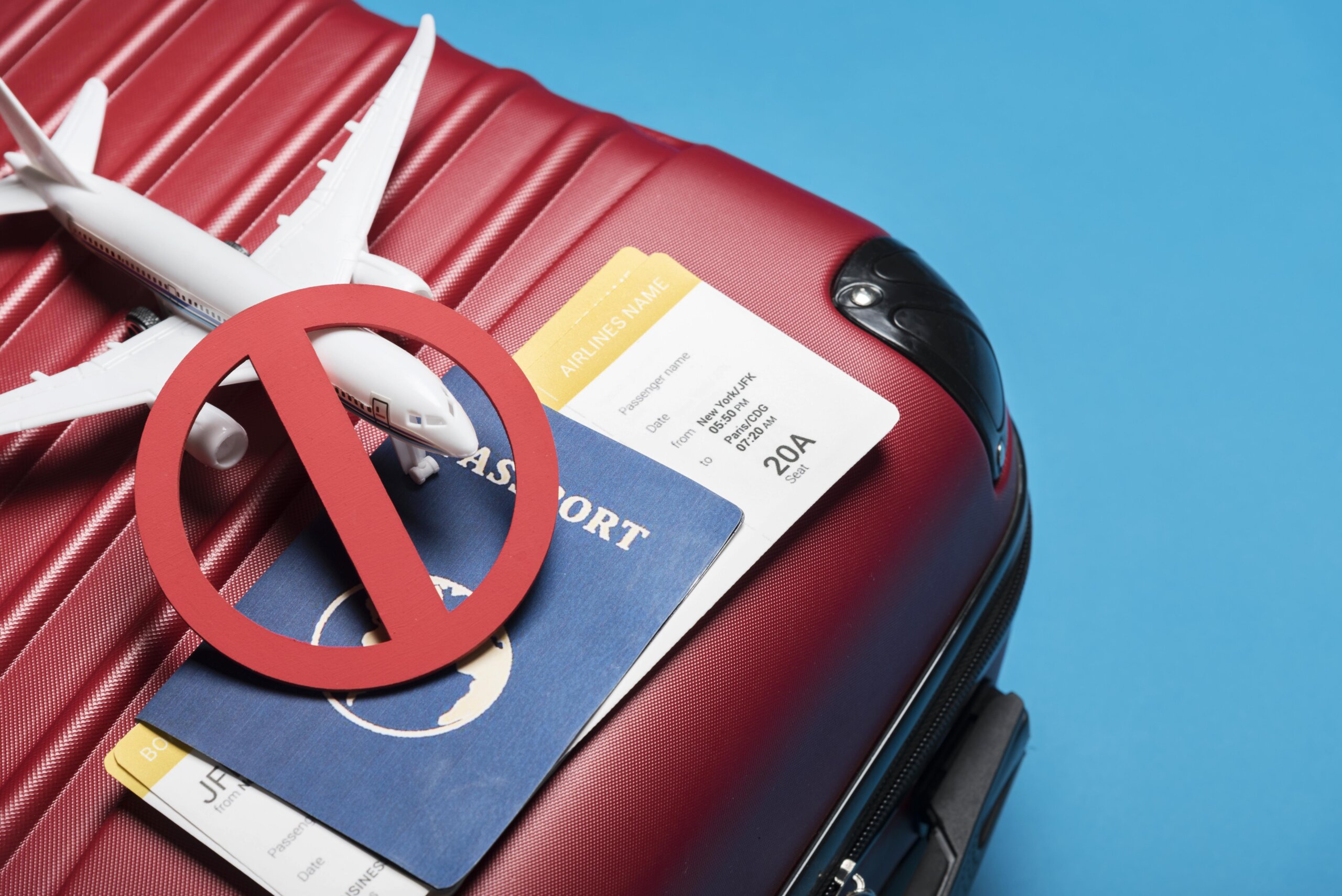Securing a student visa is a crucial step for studying abroad. However, it can be challenging, with varying rejection rates. For example, the US has a rigorous process, with F-1 student Visa rejections typically ranging between 25-35 percent. In contrast, the UK maintains a lower rejection rate, often below 10 percent, depending on the applicant’s background and application thoroughness. Canada, known for its openness to international students, ironically sees rejection rates of 25-30 percent. In 2022, the rejection rate stood at 50 percent according to the Times of India. Meanwhile, Australia and Germany have more favourable outcomes, with rejection rates typically around 10-15 percent. These rates can fluctuate based on changes in immigration policies, geopolitical events, and the applicant’s country of origin.
In this blog, Kainaaz Mistry, Lead Operations of Education Services from OneVasco, a visa concierge service and a subsidiary of VFS Global, delves into reasons for visa rejections and provides practical tips to improve your chances of approval.
Understanding US F1 Visa rejections and steps to take in case of denials
Navigating the intricacies of securing a US F1 Visa can be nerve-wracking and requires careful preparation and understanding of potential hurdles that may lead to visa rejection. Understanding the reasons for rejection and devising a game plan is wise.
Common reasons for F1 Visa rejections
1) Late applications:
One common reason for rejection is applying for it after the programme start date specified on the I-20 or DS-2019 form.
Pro-tip: Plan and apply well in advance to avoid such complications.
2) Financial considerations:
Applicants must reveal that they have sufficient funds to cover the cost of their programme and their stay in the US. If the I-20 or DS-2019 document does not show proof of sufficient funds, the F1 visa will be denied.
Pro-tip: You must provide evidence, such as bank details and scholarship documents, demonstrating the availability of liquid assets to cover the first year of study.
3) Integrity of documents:
Documents serve as proof and provide insights into an applicant’s background. Incomplete, inaccurate, or missing documents can undermine an application’s credibility.
Pro-tip: Submit all the required documents, ensure they are authentic and complete your application form without errors.
4) Unsatisfactory interview:
The visa interview, though brief, is pivotal. Applicants must make a strong impression within minutes. You risk being rejected if you can’t clearly explain yourself.
Pro-tip: Being truthful, logical, and consistent during the interview process is critical to making a favourable impression.
5) Unconvincing intent to return:
The F1 Visa is intended for a temporary stay in the US for educational purposes only. Consular personnel must ensure that applicants do not misuse the student visa as a means to immigrate permanently. A visa application is immediately denied if they have reason to believe that the applicant does not intend to return home.
Pro-tip: Demonstrate your intention to return home after finishing your studies. Provide concrete evidence and documents that tie you to your home country that require you to return.
What you can do after facing a denial with your F1 Visa
While there is no formal appeal process for US visa denials, you can reapply for an F1 Visa by submitting a fresh application, paying the requisite fees, and participating in another interview. The good news is that there are no restrictions on the number of times students can apply for an F1 Visa after a denial, allowing applicants to address previous concerns and submit additional supporting materials until approval.
To enhance your likelihood of approval, here are a few tips:
- Identify and rectify the issues that led to the previous denial
- Provide supporting documents and clarifications
- Strengthen your application with new evidence
Understanding UK student visa rejections: Causes and steps to take in case of denials
The UK attracts numerous applicants annually. However, successfully navigating the visa process requires a thorough understanding of its complexities. Begin by reviewing the latest visa requirements on the official UK government website (GOV.UK), ensuring compliance with financial, English proficiency, academic, and other specified criteria. Completing the visa application accurately is crucial. If you are uncertain about any aspect of your application, seek advice from immigration consultants or educational advisors.
Common reasons for UK Student Visa rejections
1) Insufficient financial evidence:
Failure to provide clear and adequate proof of financial ability to support your studies in the UK can result in a visa refusal.
Pro-tip: Ensure your bank statements cover the required period and show sufficient funds for tuition fees, accommodation, and living expenses.
2) Lack of genuine intentions:
Your inability to convincingly demonstrate your intention to study in the UK and return home after completing your studies may result in a visa refusal, especially if UKVI requests a credibility interview.
Pro-tip: Clearly outline your study plans and provide evidence of ties to your home country, such as family, property, or a job offer after graduation.
3) Incomplete application or supporting documents:
Submitting an incomplete application or failing to provide required supporting documents can lead to delays or refusal.
Pro-tip: Double-check your application and ensure all necessary documents, including transcripts, references, and certificates, are included and accurate.
4) Inadequate health conditions:
One of the leading medical conditions that can prevent entry is tuberculosis (TB). Additionally, individuals with infectious diseases posing a public health risk, such as cholera, Ebola, and SARS, may be denied entry. Applicants from certain countries must undergo a TB test and obtain a clearance certificate before applying for a visa lasting more than six months. Positive TB test results may require further medical treatment before visa approval.
Pro-tip: Complete a TB test and obtain clearance, follow UK guidelines on infectious diseases, and seek advice from healthcare providers or immigration advisors regarding any health issues affecting visa eligibility.
5) Inability to verify bank statements:
Occasionally, UKVI contacts the bank for financial verifications; if the bank cannot provide adequate information, you may face a rejection
Pro-tip: Inform the Bank manager to keep a check for emails and phone calls from UKVI during the visa process.
What you can do after facing a UK Student Visa denial
1) Understand the reasons:
Carefully read the refusal letter to understand the reasons for the visa refusal. This will help you identify areas that need improvement in your next application.
2) Review your application:
Compare the reasons for refusal with your original application and supporting documents. Identify any discrepancies or misunderstandings that may have contributed to the refusal.
3) Consider an appeal or an administrative review:
Depending on the circumstances of your refusal, you may have the option to appeal the decision or request an administrative review. Follow the instructions provided in the refusal letter regarding the appeals process and timeframe.
4) Reapply with corrected information:
If an appeal or administrative review is not an option or is unsuccessful, consider reapplying for the student visa. Address any issues identified in the refusal letter and provide additional documentation or clarifications as needed.
5) Seek professional advice:
Consult with an immigration advisor or solicitor specialising in UK visas for guidance on your specific situation. They can provide expert advice on whether to appeal, reapply, and how to strengthen your application for a better chance of success.
Understanding Canadian study permit rejections: Causes and steps to take in case of denials
Navigating the process of obtaining a study permit for Canada can be daunting yet crucial for international students. Understanding the common reasons for rejections and knowing how to respond effectively can significantly improve your chances of success.
Common reasons for rejection of Study Permits in Canada
1) False documents and misrepresentation:
A significant number of study permit rejections from India between 2018-2023 were due to issues with falsified documents and misinterpretation. It’s essential to ensure all documents are genuine and accurately represent your background and intentions.
Pro-tip: Use a comprehensive document checklist to verify that all required paperwork is submitted correctly and authentically.
2) Institutions without Designated Learning Institution (DLI) status:
Applying to a university or college that is not on Canada’s DLI list can lead to the rejection of your study permit application. Only DLIs are authorised to accept international students.
Pro-tip: Before applying, confirm that your chosen institution is listed as a DLI on the Canadian government’s official website.
3) Not having a Provincial Attestation Letter (PAL) or Quebec Acceptance Certificate (CAQ):
Depending on your study location, you may need to provide a PAL or CAQ. These documents confirm your acceptance at a Canadian educational institution and are crucial for your study permit application.
Pro tip: For schools outside Quebec, contact your school to understand how to get a PAL. If you’re applying to schools in Quebec, make sure your CAQ confirms your spot in Quebec’s study permit application distribution.
4) Insufficient financial proof:
Demonstrating sufficient financial support is vital. If applying through the Student Direct Stream (SDS), you must have a Guaranteed Investment Certificate (GIC) worth at least $20,635 ($15,078 for Quebec) and provide recent bank statements showing adequate funds for tuition, accommodation, and living expenses.
Pro-tip: Organise your financial documents meticulously to meet the specific requirements of your application.
5) Insufficient reasons to study in Canada:
Consular personnel must verify why applicants wish to study in Canada and require a clear SOP with your application, outlining your educational goals, programme choice, career aspirations, and reasons for studying in Canada. Any disparities in this document can lead to a rejection.
Pro tip: Clearly write your SOP with all the requirements, addressing any educational gaps or inconsistencies in academic performance to provide a comprehensive view of your qualifications.
6) Unclear intention to return to home country:
Canada needs to ensure that you will not misuse your study permit by using it to immigrate. Therefore, it is essential to demonstrate intent to return to the country after completing your studies. If the consular personnel feel you may not return, they will reject your application.
Pro-tip: Provide evidence such as property papers, any kind of investments or any documentation that ties you to the country.
7) Suspicious travel history:
Travel history is essential for a Canada Study Permit because it gives immigration officials insights into an applicant’s previous movements. They may reject you if you have stayed longer in a country than your visa permits, worked without authorisation, did not comply with the immigration laws of a country or were involved in criminal activity.
Pro-tip: Provide a transparent and verifiable travel history to demonstrate your credibility and adherence to immigration regulations.
What you can do after facing a Canadian Study Permit denial
1) Order GCMS notes:
Request GCMS notes (Global Canada Management System) to thoroughly understand the reasons for your rejection. These notes provide insights into visa officers’ decision-making process.
2) Reconsideration of application:
If you believe there were no errors on your part, request a reconsideration of your application. Immigration, Refugees, and Citizenship Canada (IRCC) will review your case again to ensure all facts are adequately considered.
3) Make an appeal:
If reconsideration fails, you may appeal the decision to the Federal Court of Canada. The appeal process involves submitting a written appeal outlining why you believe the decision should be overturned.
4) Reapply for Study Permit:
If the reasons for rejection are valid, such as incomplete documentation or insufficient financial proof, you can reapply for a study permit. Take the time to address any deficiencies in your previous application and submit additional supporting documents as necessary. You may need to defer your studies by a semester to allow ample time for a more comprehensive and improved application.
5) Seek Professional Advice:
Consult with an immigration advisor or solicitor specialising in Canadian visas for personalised guidance on your situation. They can advise on the best course of action to maximise your chances of obtaining a study permit.
Navigating the complexities of student visa applications demands foresight and preparation. Each country’s visa process presents unique challenges and criteria, influencing acceptance rates. That’s why The Red Pen has recently partnered with OneVasco, a visa concierge service that offers personalised assistance to simplify your visa application and reduce the chances of rejection. You may also want to read their blogs: Processing Your Student Visa: A Guide for Popular Study Abroad Destinations and Your Ultimate Guide to Student Visas: Types, Timelines, and Tips. Please contact The Red Pen if you need help filling and submitting visa forms. Avail OneVasco’s visa services today!
A premier provider of visa concierge services, OneVasco is a subsidiary of VFS Global – Asia’s largest visa outsourcing company, serving 67 governments worldwide. Their deep understanding of visa complexities provides a streamlined, hassle-free experience.




